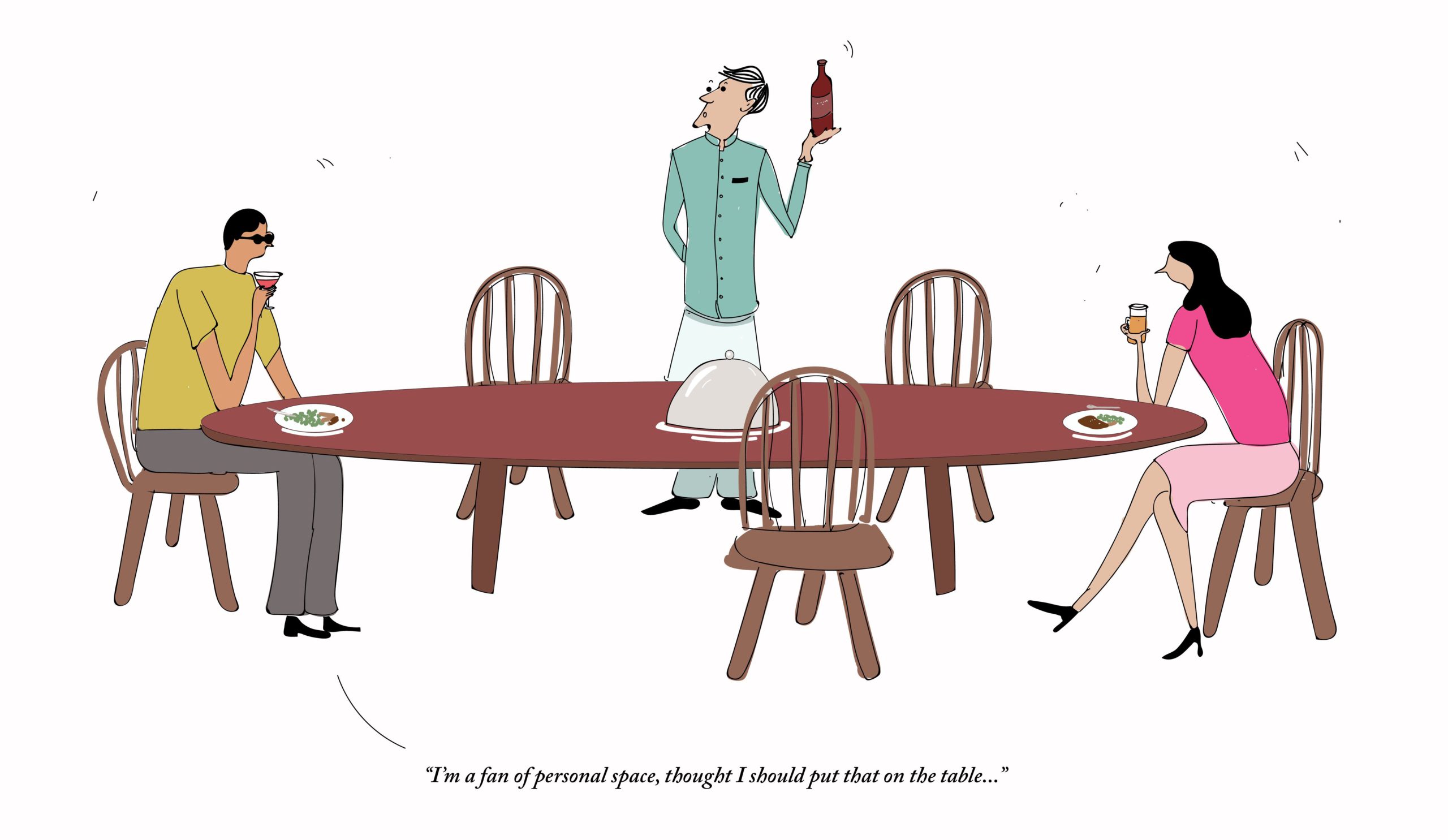Bhabna Banerjee | Creative Director
Featured image courtesy of Bhabna Banerjee
Manasvi Mathur, 20, an exchange student at York, has been on dates with three college men over the last two months through the online dating service Bumble — none of whom she has ever seen again. A psychology major, Manasvi is well-versed in the evolving conversation around #MeToo, which she initiates out of curiosity on the first date. “Some men feel under attack and tend to stay conscious for the rest of the night,” Mathur says. “The worst are the ones who claim to ‘get it’ but will follow that claim with justifications of their previous actions.”
Despite the varied reactions, Mathur has had one clear takeaway: #MeToo has altered the conversation around power dynamics and consent in dating, and that’s changed the game.
Since October 2017, when the #MeToo social media trend surfaced after a wave of Hollywood actresses began reporting their sexual assault allegations, there has been an exponential growth in the number of women who have shared their accounts of sexual mistreatment at the hands of men. The hyper-awareness post #MeToo has caused young adults, especially men, to grow scared, confused and altogether refrain from being involved in casual relationships in college.
According to a poll by NBC News and The Wall Street Journal conducted in October 2018, the #MeToo movement has changed the way both men and women approach dating — nearly 50 per cent of the women surveyed claimed they felt encouraged to voice their opinions even with their romantic partners. Forty-nine per cent of the men surveyed said that the women’s opinions and stories caused them to rethink their own attitudes and actions around dating.
Another survey focusing on a younger demographic showed similar statistics. A survey conducted by MTV in December 2018, revealed that 40 per cent of male respondents between the ages of 18 to 25 said the movement had changed the way they act in potential romantic relationships.
Young adults fear unintentionally crossing boundaries in a field where they possess little to no experience. Even a seemingly simple act like paying for a date has become a taxing task for those in fear of having their actions misinterpreted.
A 2018 survey by dating service Three Day Rule found young women admitting to be scared of inappropriate behaviour or too triggered by the numerous harassment news to want to spend time with men.
The survey also revealed a large percentage of young women who are concerned about how to voice their experiences with harassment against a potential partner.
Rupkatha Basu, a writer at The Trauma and Mental Health Report at York says that in her experience, most men today who do not like to associate with feminism are post-feminists — they believe that gender equality has been achieved, and so any fight in this area is not only useless, but an attack by women on men. The anxiety created by movements like #MeToo leads to resentment, and they’re wary of women who will get “too political” on them or will call them out on what they’re used to getting away with.
“For the other kind of men, #MeToo has been about self-awakening, about realizing the ingrained misogyny within themselves,” Basu said. “They have realized that it’s not about their intentions, but about the feelings of the person at the receiving end. They’re thinking twice about every move now. And that is a good thing.”
In 2018, University of California Berkeley undertook an initiative to publish its first MyVoice Survey involving the entire campus community including students, faculty, and staff. The survey was designed and implemented by the UC Berkeley MyVoice Working Group in partnership with National Opinion Research Center, one of the largest independent social research organizations in the country based at the University of
Chicago. The survey gave the campus community a platform to share their experiences, beliefs, norms and knowledge regarding sexual violence harassment.
The survey comprised of questions on five categories of beliefs and attitudes on sexual violence: personal responsibility, ambiguity around reports of sexual violence, sexual harassment, relationship violence, and stalking.
The survey highlighted that in the current #MeToo era, young adults feel differently about certain traditional romantic acts as a result of the awareness.
In a question under the category of relationship violence, the survey asked whether the respondent felt it was a problem for one partner to make personal decisions for the other partner, such as ordering food for them at a restaurant. Contrary to the popular belief amongst couples before #MeToo, where it could be considered courteous or gentlemanly for the man to order food for the woman, 86 per cent of UC Berkeley undergraduate students agreed that such an action is problematic.
The results were similar for questions around other traditional romantic acts—84 per cent of students felt that it is a problem to “pursue” or keep asking a friend/colleague on dates to show their persistence even after their friend says “no.” Eighty-one per cent of students also said that leaving cards, gifts or flowers for someone without their permission is a problem.
The overall statistics showed that the social intervention of the world’s first mass movement against sexual abuse, #MeToo, was successful in changing dating norms amongst young adults who begin exploring their first real relationships in post-secondary institutions.


